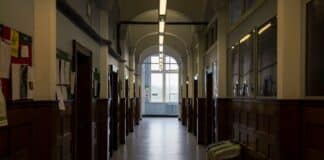South Korea’s political crisis deepened as more than 15 million citizens cast early ballots in the high-stakes June 3 presidential election to replace former President Yoon Suk-yeol. Early voting concluded Friday, with nearly 35 percent of the electorate participating. The massive turnout reflects widespread anxiety over the nation’s future after months of political turmoil, martial law threats, and legal chaos.
Both major parties, the conservative People Power Party (PPP) and the left-leaning Democratic Party, aggressively pushed for early voting, while celebrities cautiously encouraged participation without taking sides. One pop star, Lee Chae-yeon, even wore a blue bracelet and brought cherry tomatoes to her polling station to avoid signaling political bias.
The election was triggered by the dramatic downfall of Yoon, who was impeached in December after attempting to impose martial law on the country. Yoon, a staunch anti-communist, accused the opposition of colluding with North Korea and tried to bypass Parliament, but his decree failed after lawmakers physically stormed the assembly. Yoon now faces charges of insurrection and abuse of power.
The PPP’s candidate, former labor minister Kim Moon-soo, has focused his campaign on fixing South Korea’s struggling economy and defeating Lee Jae-myung, the embattled Democratic Party frontrunner. Kim warns that Lee’s legal troubles—including five ongoing cases, a suspended prison sentence for election law violations, and ties to a corruption scandal—could drag the nation into further instability.
Lee, in turn, accuses the former Yoon administration of political persecution and uses Yoon’s failed martial law as a rallying cry. Final polls show Lee leading with 49 percent support, followed by Kim at 35 percent, and third-party candidate Lee Jun-seok at 11 percent, raising concerns the opposition vote will split.
South Korea’s future hangs in the balance as the nation braces for the special election.





